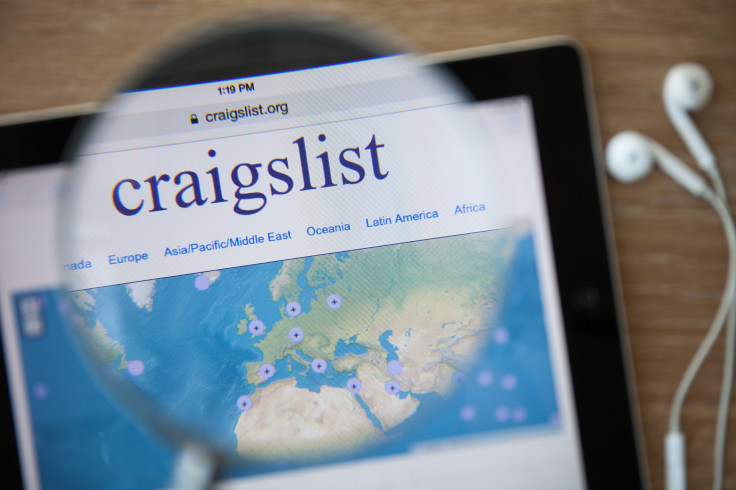Craigslist Sex Led To 13.5% Increase In Florida HIV Rate, $710M In Medical Costs

The rollout of the popular classifieds website Craigslist in Florida led to encounters that were any but casual, according to a new study published in Management Science. Observing the rate of confirmed HIV cases from 2002 to 2006, the researchers concluded that the introduction of Craigslist to various cities and counties within the state contributed to a 13.5 percent increase in the HIV rate, with an additional 1,149 infections that wouldn’t have been seen otherwise. The authors estimated that these cases, over a lifetime, will amount to $710 million in medical costs.
Craigslist is known for providing people an online forum on which to advertise and purchase goods and services locally, including, rather infamously, the prospect of casual or paid sex. The researchers, noting that Craigslist became available to different residential areas on a staggered schedule, were able to isolate its influence on the rate of reported HIV cases before and after its introduction. They drew on the census data of 12 million Florida patients and 223 hospitals to come to their findings.
Previous research has demonstrated the link between Craigslist and HIV rates. In a 2015 study published in MIS Quarterly, the authors, after having looked at 33 states from 1999 to 2008, found that the emergence of Craigslist was associated with a nearly 16 percent rise in HIV cases. As casual, pseudonymous, sex became easier to find via the site, so too did the chances of contracting HIV, the authors concluded. Unlike the previous study, however, the authors of this current research were able to identify who exactly was at greater risk of HIV from the introduction of Craigslist to an area. 63 percent of the new cases were African-Americans, a finding the authors were taken aback by. "That is a bit of paradox," said study co-author Dr. Rita Agarwal in a press release, "because research suggests that the African-American community is one which uses the Internet the least, even though the gap is narrowing."
This paradox has come as a result of what the researchers have dubbed a "double divide," where disadvantaged individuals aren’t incapable of using technologies like the Internet but might be less knowledgeable about how to use it safely. Similarly, they were somewhat surprised by the finding that it was wealthier people, with their own insurance, who were more likely to contract HIV. "It could be the case that higher-income people face a higher social penalty for engaging in casual, quasi-anonymous sex, and that the freedom of Internet anonymity changes their behavior more than it does for the less wealthy," Agarwal said. "Or it could be a byproduct of substantially better Internet access."
Rate increases among men and women weren’t noticeably different either, leading the authors to speculate that safe sex may have been practiced more among HIV-positive gay individuals cruising Craigslist than among heterosexuals, or that Craigslist provided for an opportunity for closested men to engage in unsafe sex with other men, who then passed it on to their female partners.
Though the results of this latest study and those similar are no doubt important, other commentators have warned about focusing too much on Craigslist as a risk factor of HIV infection. "While men might seek out avenues like Craigslist for risky sex, as the authors note, they may also be doing so because they feel they have no other outlets for their secret desires or the selves they feel like they can’t express in public," wrote Nico Lang of the Daily Dot on the earlier study in February.
For homosexual men, the group still at highest risk, Lang notes that there is a long history of shame and silence surrounding HIV. Preventive treatments are mocked by gay community leaders; people keep their HIV status secret or hidden, even to themselves, due to stigma; and young Americans abandon safe sex practices as a result of ignorance or misinformation about the risks involved. Unless combatted, these trends will remain true regardless of what newfangled service or app Americans use to search out casual sex, Lang wrote.
"It’s not Craigslist personals ads that are keeping HIV alive. It’s bigotry that spreads disease, and there’s no more potent plague than self-hate," Lang concluded.
Source: Greenwood B, Agarwal R. Matching platforms and HIV Incidence: an empirical investigation of race, gender, and socio-economic status. Management Science. 2015.



























